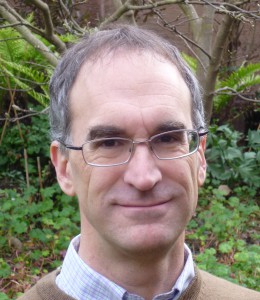Events

- This event has passed.
John MacFarlane: “A Puzzle about Modal Necessity”
January 13, 2011 @ 4:00 pm - 6:00 pm | Stevenson Fireside Lounge
 When does it make sense to be uncertain whether it’s possible that p? On many accounts of the semantics of epistemic modals, including the one favored by Professor MacFarlane, epistemic modal uncertainty should be appropriate only when one is (a) uncertain about what one knows, or more generally about what is contained in the body of information relevant to evaluating the modal, or (b) uncertain about whether the complement of the modal is compatible with that body of information. However, there are cases in which epistemic modal uncertainty seems natural even though neither of these conditions is met. Professor MacFarlane will consider what should be said about these cases, and about parallel cases of uncertainty about what ought to be done.
When does it make sense to be uncertain whether it’s possible that p? On many accounts of the semantics of epistemic modals, including the one favored by Professor MacFarlane, epistemic modal uncertainty should be appropriate only when one is (a) uncertain about what one knows, or more generally about what is contained in the body of information relevant to evaluating the modal, or (b) uncertain about whether the complement of the modal is compatible with that body of information. However, there are cases in which epistemic modal uncertainty seems natural even though neither of these conditions is met. Professor MacFarlane will consider what should be said about these cases, and about parallel cases of uncertainty about what ought to be done.
John MacFarlane is Professor of Philosophy and a member of the Group in Logic and the Methodology of Science at the University of California, Berkeley. He grew up in northern New Mexico and attended Harvard University, graduating in 1991 with an A.B. summa cum laude in Philosophy and an honors thesis on Plato’s Protagoras and Gorgias. After a year working on the Navajo reservation in Arizona, he went on to the University of Pittsburgh, earning an M.A. in Classics in 1997 and a Ph.D. in Philosophy in 2000. His dissertation, “What Does It Mean to Say that Logic Is Formal?”, which he wrote under the supervision of Robert Brandom and Nuel D. Belnap, sought to illuminate contemporary debates about the demarcation of logic by looking at the genealogy of some key concepts used in those debates. MacFarlane has been teaching at Berkeley since 2000. While he has continued to work and teach in ancient philosophy and the philosophy of logic, the main focus of his research in the last eight years has been the philosophy of language. He has sought to make intellectually respectable the idea that the contents of our thought and talk can be “assessment-sensitive”–that is, their truth as assessed from a context can depend on features of that context–and put this idea to use in solving philosophical and semantic problems concerning future contingents, epistemic and deontic modals, knowledge attributions, claims of taste, and indicative conditionals. He is currently working on a unified, book-length presentation of this work.
